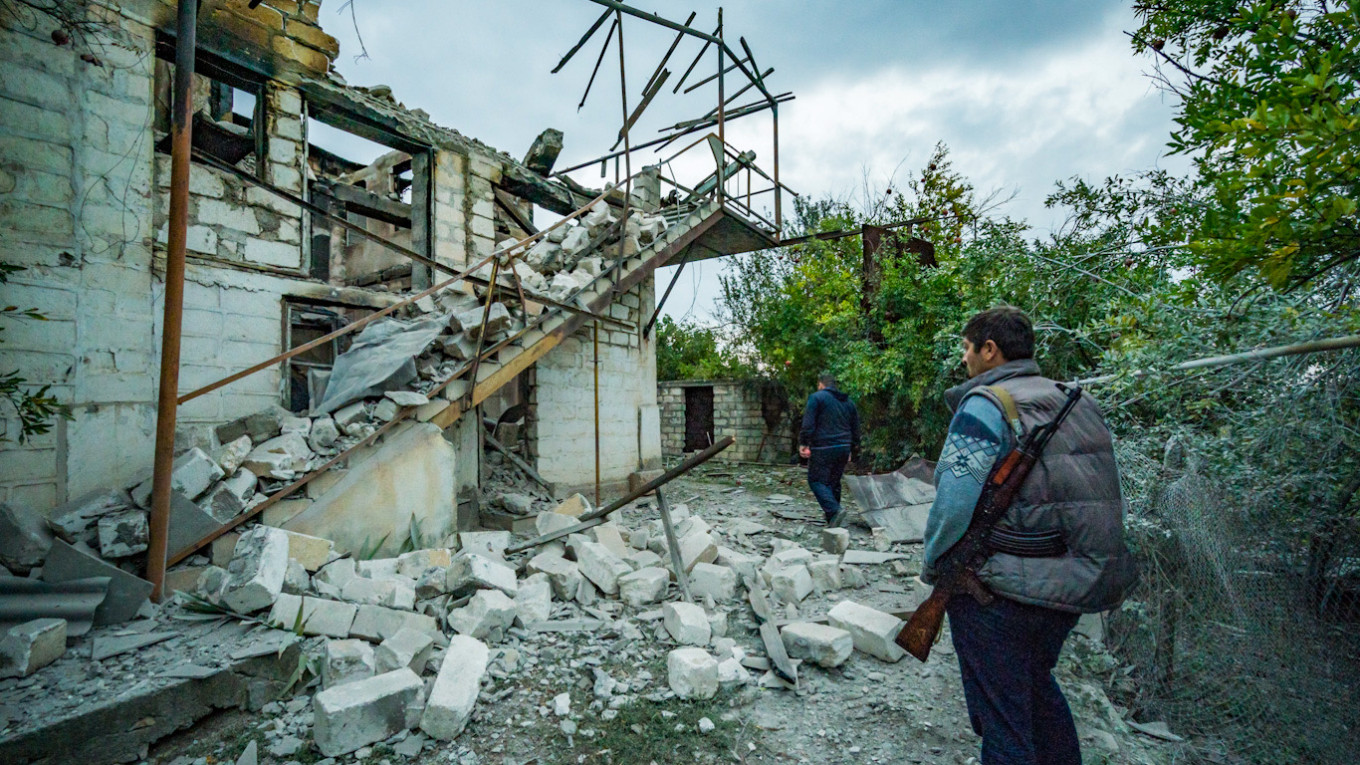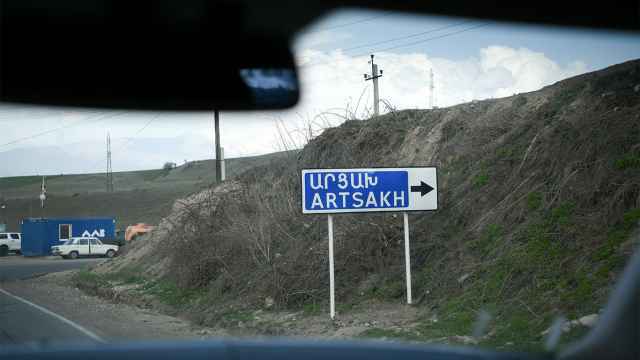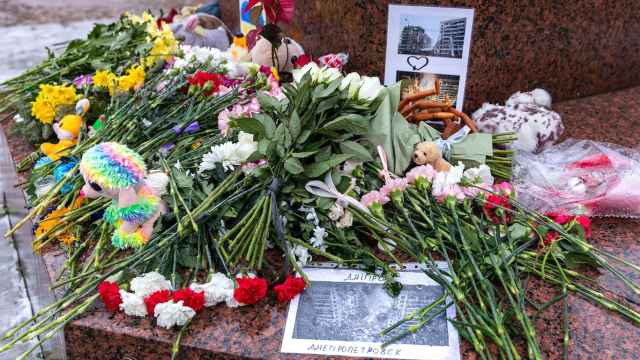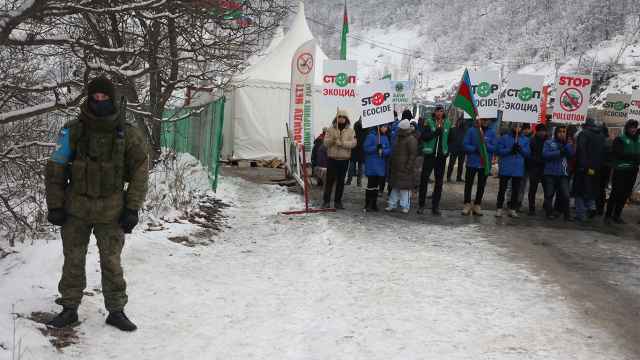On Oct. 14, after almost three weeks of war in Nagorno-Karabakh, Turkish President Recep Tayyip Erdogan called his Russian counterpart Vladimir Putin to discuss the situation.
After almost thirty years of smoldering conflict Turkey fanned the flames by inserting itself as a de-facto party on the side of Azerbaijan. The Russian position on the settlement of the Nagorno-Karabakh issue and the dispute over the seven Armenia-occupied areas hasn’t changed in principle since the early 1990s. But the “Turkish factor” is now pushing Moscow to deal with yet another layer to the conflict.
Both Putin and Erdogan spoke in favor of “stepping up the political process, in particular, based on the work of the OSCE Minsk Group.” The Kremlin press statement also stated – somewhat vaguely – that “hope was expressed that Turkey, as a member of the OSCE Minsk Group, would make a constructive contribution to de-escalating the conflict.”
Days before the phone call, the Russian Foreign and Defense Ministers as well as the Foreign Intelligence Service (SVR) signaled to their Turkish colleagues that Moscow wasn’t happy with the presence of mercenaries, allegedly transferred from Syria and Libya to the front lines in Nagorno-Karabakh.
To show that Russia was serious about its concerns, hours before the conversation between presidents Erdogan and Putin, Russian forces delivered airstrikes to some pro-Turkish groups in Idlib that the Russian military believed wee being trained for deployment to Nagorno-Karabakh.
Earlier that day Azerbaijan’s Defense Ministry destroyed Armenia’s operational-tactical missile system with ballistic missiles strikes right on the border regions of Armenia. The Azebaijani strikes on Armenian territory and military hardware could have activated a Russian response, but it’s clear that the Kremlin intends to continue its delicate balancing policy between Baku and Yerevan, if only to preserve its geopolitical presence in the South Caucasus and maintain the role of “a just mediator.”
Remarkably, a few hours after the Azeri strikes in an interview with three Russian media outlets, Foreign Minister Sergey Lavrov reminded observers that, in accordance with the Madrid principles, deploying peacekeepers in Nagorno-Karabakh is an option for when Moscow believes that a deployment of “Russian military observers” will be “sufficient.”
He added that the co-chairs of the OSCE Minsk group — Russia, France and the United States — are now elaborating proposals for a phased de-occupation of “the areas around Karabakh with due security guarantees and with the preservation of ‘reliable connection’ between Armenia and the [Nagorno-Karabakh] region until its final status is defined.”
Lavrov’s statement is important in signaling how Moscow is grappling with the crisis given the options it has and the limitations it faces.
Whichever way you look at it, the menu of Russia’s options ranges from bad to worse. Being egged on by Turkey, Azerbaijan’s military offensive is unlikely to stop until either Baku receives a political solution that could incentivize President Ilham Aliyev to return to diplomacy or until Moscow interferes militarily on the side of Armenia to stop the Azerbaijani offensive in its tracks.
If Russia refrains from interfering and Azerbaijan manages to reclaim the occupied territories from Armenia by force, Baku will likely consider Turkey, not Russia, as the party it should be grateful to and will be emboldened to take over Karabakh militarily.
If Russia engages in the fighting and helps Armenia to upset the Azeri-Turkish offensive, Moscow will see Azerbaijan as “lost” to Russian influence for decades to come.
Turkey’s regional dominance will also most likely rise in this case. Should Russia coerce the parties to accept a deal that other Azeribaijani and Armenian elites find unacceptable, there’s a risk that the current leaderships may suffer setbacks at home, and the new elites in Azerbaijan and Armenia may become more pro-Turkish and pro-Western, respectively, both of which would be detrimental to Russia’s interests in the Caucasus.
Therefore, the need to navigate between the Scylla of “reputational blow over not doing enough for the ally” and Charybdis of “repercussions of military involvement in yet another war” have pushed Russia to pursue a double-layered policy.
On the one hand, none of the co-chairs of the OSCE Minsk Group, including Russia, can now completely ignore Azerbaijan’s aim to reclaim the occupied territories around Nagorno-Karabakh.
The idea of having Armenia-occupied territories gradually return to Azerbaijan’s control was enshrined in the so-called Kazan formula.
Yerevan may not be entirely happy with the idea, but the issue of de-occupying them as the only viable alternative to a war appears to be the lesser evil.
Under this vision, other contested issues between Armenia and Azerbaijan are to be kicked down the road of political settlement in favor of stopping the fighting.
On the other hand, addressing the second component — how to stop the Turkish geopolitical advance without slipping into open hostilities — is at least as complicated.
Over the past few weeks Moscow has weighed up the different ways to respond to Turkish diplomatic and military assertiveness.
During this time a narrative of the “terrorist threat at the gate” has been gradually shaping up in the Russian media, official statements and policy debate.
Reports on counter-terrorist operations across the Russian south have been frequent over the past few days. Chechnya’s head Ramzan Kadyrov, for instance, reported on the elimination of four “members of illegal groups” who were allegedly smuggled to Chechnya from Syria to plot terrorist attacks in the North Caucasus.
Russia is clearly messaging its redlines and its resolve to respond to the growing threats. If Turkey continues to follow a course of what could be seen in Russia as escalating the conflict, Moscow will also have a political, moral and military case built for some kind of involvement to eliminate pro-Turkic groups it pictures as “terrorist.” In turn, Armenian Prime Minister Nikol Pashinyan is using the “terrorist card” to incentivize Russia to spearhead its own military involvement.
For now, Erdogan can perhaps be satisfied that his own tactics have finally grabbed Putin’s attention, since Russia has started talking to Turkey about Karabakh and is now calling for Ankara’s “constructive contribution” to a settlement.
Russia, however, has its own vision for the conflict, and will plug away at it on its own until it can be legitimized through the OSCE Minsk Group. Among many things the Syria campaign should have taught Russian policy makers is that having a bilateral security deal with Turkey is like getting a mortgage: your housing issue is settled but a monthly payment and interest rate will keep you on your toes for a long time.
A Message from The Moscow Times:
Dear readers,
We are facing unprecedented challenges. Russia's Prosecutor General's Office has designated The Moscow Times as an "undesirable" organization, criminalizing our work and putting our staff at risk of prosecution. This follows our earlier unjust labeling as a "foreign agent."
These actions are direct attempts to silence independent journalism in Russia. The authorities claim our work "discredits the decisions of the Russian leadership." We see things differently: we strive to provide accurate, unbiased reporting on Russia.
We, the journalists of The Moscow Times, refuse to be silenced. But to continue our work, we need your help.
Your support, no matter how small, makes a world of difference. If you can, please support us monthly starting from just $2. It's quick to set up, and every contribution makes a significant impact.
By supporting The Moscow Times, you're defending open, independent journalism in the face of repression. Thank you for standing with us.
Remind me later.








